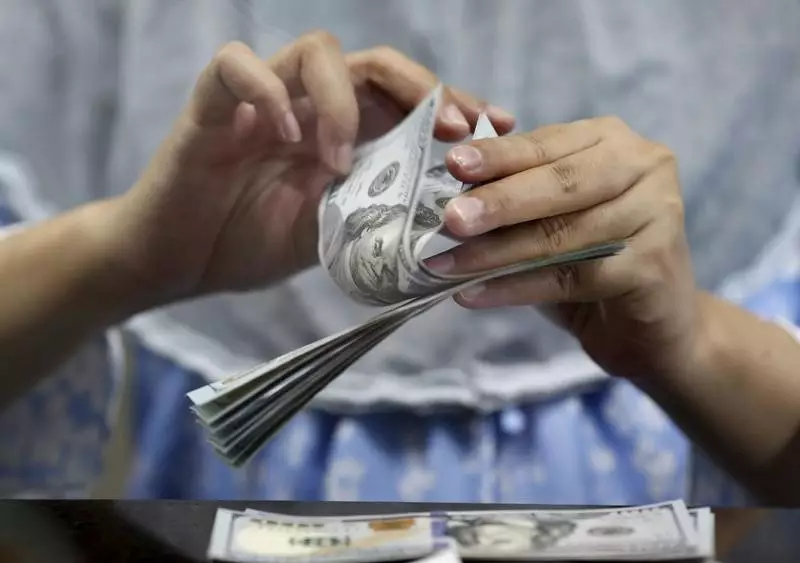In the swirling currents of global finance, political events often propel significant changes in currency valuations. Recently, the dollar has experienced a tentative revival, largely attributed to the renewed perception surrounding former President Donald Trump’s potential return to political power. While some investors may view this as a promising indicator for the dollar’s strength, experts from UBS caution against overly optimistic assumptions. Their assessment emphasizes a more nuanced understanding of the intertwining relationship between political fortunes and currency performance, particularly stressing that enhanced dollar rallies might not be sustainable in the medium term.
As the U.S. election approaches—just weeks away—the stakes are notably high. Polling suggests a narrowing race, with Trump making inroads against Vice President Kamala Harris, thus increasing speculation around another “Trump trade.” This term refers to market behaviors strongly linked to Trump’s past presidency, when his policies often led to waves of market optimism that benefitted the dollar. However, the assertion that Trump’s potential candidacy equates to a blanket endorsement for dollar growth may be misguided. UBS notes that while a Trump victory might incite an immediate dollar rally, the greenback’s appeal may not hold firm as broader economic realities come into play.
Interestingly, market dynamics seem influenced by a complex fabric of assumptions about impending political outcomes. The increased probability of a Trump-led presidency has reportedly heightened investor enthusiasm, contributing to dollar rallies that might otherwise have not been seen. Nonetheless, UBS forecasts suggest that prospective gains for the dollar could stall; they project that the euro may reach 1.16 against the dollar by 2025. This kind of forecasting invites skepticism regarding the sustainability of current trends, underscoring the caution that should accompany any hasty investments based solely on political predictions.
Beyond the surface-level political intrigue lies a deeper economic landscape that continually shapes currency movements. The dollar’s performance, while momentarily buoyed by the “Trump trade,” could be curtailed by broader international economic conditions, monetary policy, and consumer sentiment. Investors should remain vigilant and critically evaluate the robustness of the dollar’s resurgence in context. This means considering not only the president’s policies but also factors such as inflation rates, trade balances, and global geopolitical tensions which invariably intertwine with currency valuation.
While the potential for a Trump victory might offer a short-term lifeline for the dollar, leaning heavily on political outcomes can lead to misguided strategies. As UBS aptly advises, a thoughtful examination of market conditions, alongside political realities, is essential for making informed investment decisions. Investors would be wise to adopt a skeptical posture toward claimed dollar growth, recognizing that the interplay between politics and currency is far from straightforward, laying the groundwork for cautious optimism faced with potential volatility on the horizon.

